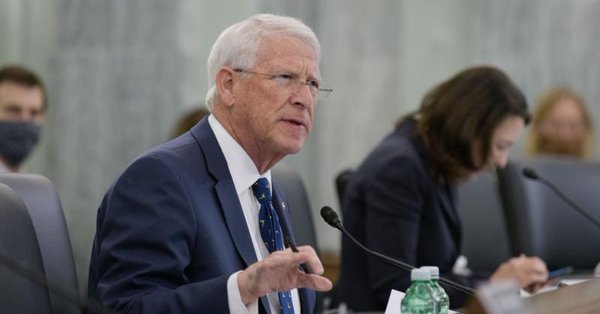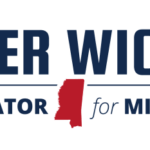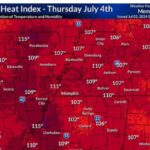Wicker: Introduces bill to improve tornado warnings
Earlier Warnings Would Save Lives
As accustomed as we Mississippians are to dealing with tornado damage, the past several weeks have been especially difficult. Violent and deadly storms tore swaths of destruction on back-to-back weekends, resulting in disaster declarations for 11 of our counties. Though the road to recovery will be long, I am heartened to see the resilience of our affected communities. As a part of the government’s long-term response to these events, I have reintroduced legislation that would improve tornado forecasting and warning systems in an effort to save lives.
Legislation Would Help Increase Storm-Warning Time
Minutes matter when a tornado is on the way. Every second is an opportunity to seek shelter, which is especially important when storms come at night. This was the case when tragedy struck in Rolling Fork. The EF-4 tornado hit well after dark, and residents reportedly had difficulty hearing the sirens. I applaud the storm chaser who supplemented the alarms by driving the streets of the town warning citizens to seek shelter.
Scientists at the National Oceanic and Atmospheric Administration (NOAA) use a combination of radar and supercomputer models to predict and detect storms. When NOAA spots a tornado, it sends warning signals to areas in the storm’s path. The TORNADO Act I introduced would direct NOAA to update their models and use the full resources of today’s technological capabilities to improve warning systems. It would also require NOAA to improve its post-storm assessments to increase our understanding of the signs that precede bad weather. These changes will help raise the quality and speed of our tornado alerts.
Other senators see the value in the TORNADO Act, and nine have already backed it. I will continue working to secure support for this legislation and press for a vote in the Senate Commerce Committee without delay.
Mississippians Take Care of One Another
When I traveled across the state to survey the damage from last month’s storms, I promised Mississippians we would be in this together for the long haul. This week, the entire Mississippi congressional delegation sent a letter to President Biden asking him to grant Governor Reeves’s request for a 30-day extension on FEMA’s 100 percent cost share aid. These funds would bolster the valiant work of local and state governments and volunteer organizations on the ground.
I have also been encouraged to see the continued attention our state is receiving. Good Morning America host and Pass Christian native Robin Roberts held a live broadcast in Rolling Fork to showcase recovery efforts. Amory’s Zachariah Smith, an American Idol favorite, filmed a video for nationwide broadcast highlighting how his town is coming together after the storm. Goodyear has pledged to pay employees while the tornado-damaged Cooper Tire plant in Tupelo is repaired. I am proud to say volunteers statewide have rallied to support their fellow Mississippians. Residents of Natchez filled an 18-wheeler with supplies for the Rolling Fork community, and the senior class at Gulfport’s West Harrison High School led a drive that brought in over 1,000 donations of clothes, toiletries, canned goods, and more. Stories like these exemplify the tradition of goodwill that has long characterized our state.
After the debris is cleared, the camera crews have left, and the rebuilding phase has begun, we will continue to walk alongside our neighbors. This legislation and FEMA aid are two steps along that journey.
Note: This item is the weekly “Wicker Report,” provided by Sen. Roger Wicker’s office.





